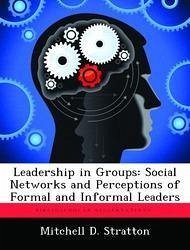Nicht lieferbar

A Study of Formal and Informal Mentoring in the United States Air Force
Versandkostenfrei!
Nicht lieferbar
Mentoring has been identified as a significant contributor to employee performance and development. Debate has come about as result of implementation of formal mentoring programs where mentors are assigned to protégés as opposed to informal relationship formed out of mutual respect and liking. Secondary data, including measures of leader member exchange, similarity, contact time, and others, were used from a 1998 survey of company grade officers (protégés) and their formal and informal mentors. Analysis of Variance compared mean values between formally and informally mentored protégés. A...
Mentoring has been identified as a significant contributor to employee performance and development. Debate has come about as result of implementation of formal mentoring programs where mentors are assigned to protégés as opposed to informal relationship formed out of mutual respect and liking. Secondary data, including measures of leader member exchange, similarity, contact time, and others, were used from a 1998 survey of company grade officers (protégés) and their formal and informal mentors. Analysis of Variance compared mean values between formally and informally mentored protégés. Additionally, a logistic regression was used to understand the impact that different measures had on the protégé's decision to identify an informal mentor. Leader Member Exchange, Similarity, Contact Time, and Military Status (active duty versus civilian) all were identified as having a significant impact on a protégés decision to identify an informal mentor. This work has been selected by scholars as being culturally important, and is part of the knowledge base of civilization as we know it. This work was reproduced from the original artifact, and remains as true to the original work as possible. Therefore, you will see the original copyright references, library stamps (as most of these works have been housed in our most important libraries around the world), and other notations in the work. This work is in the public domain in the United States of America, and possibly other nations. Within the United States, you may freely copy and distribute this work, as no entity (individual or corporate) has a copyright on the body of the work. As a reproduction of a historical artifact, this work may contain missing or blurred pages, poor pictures, errant marks, etc. Scholars believe, and we concur, that this work is important enough to be preserved, reproduced, and made generally available to the public. We appreciate your support of the preservation process, and thank you for being an important part of keeping this knowledge alive and relevant.











